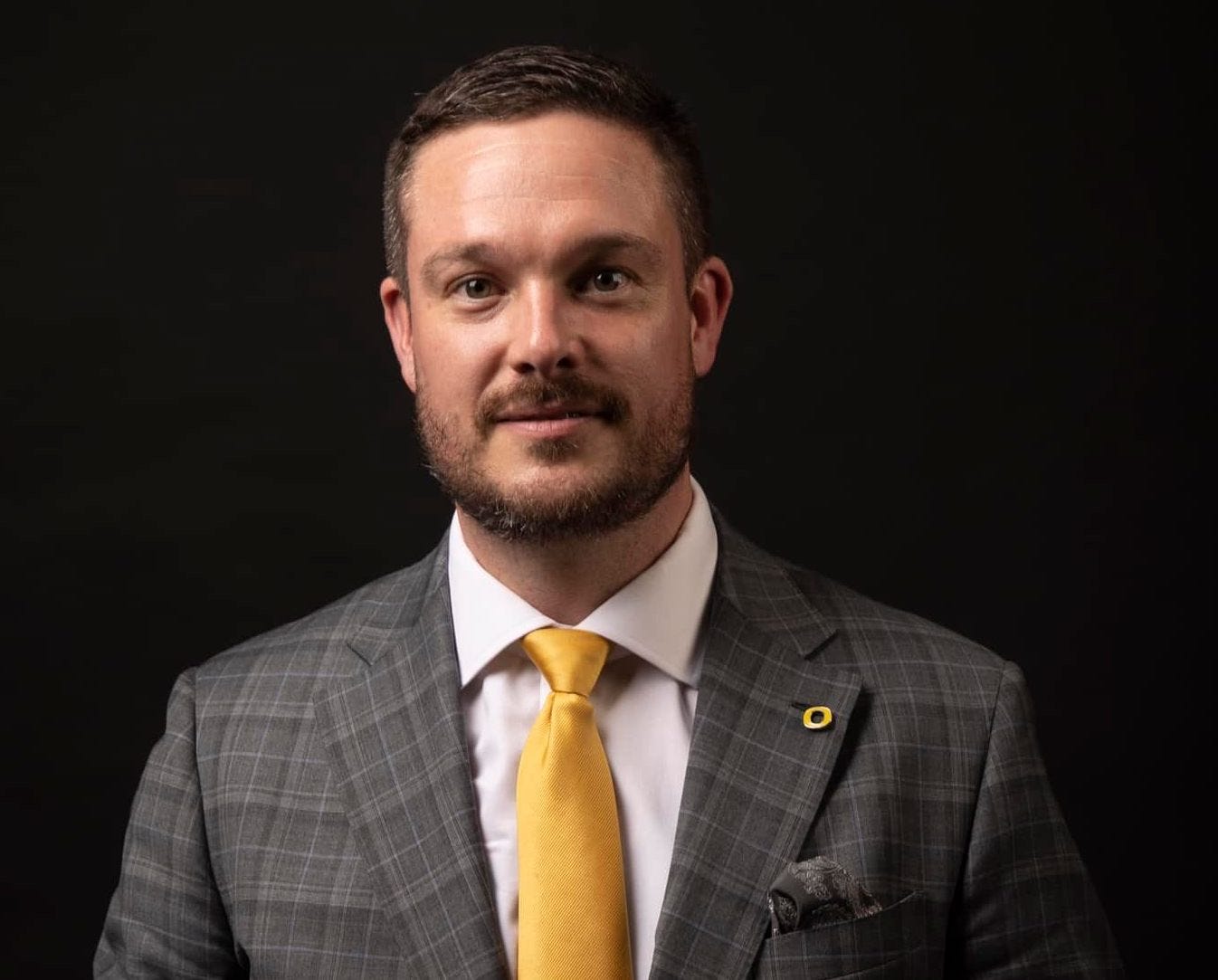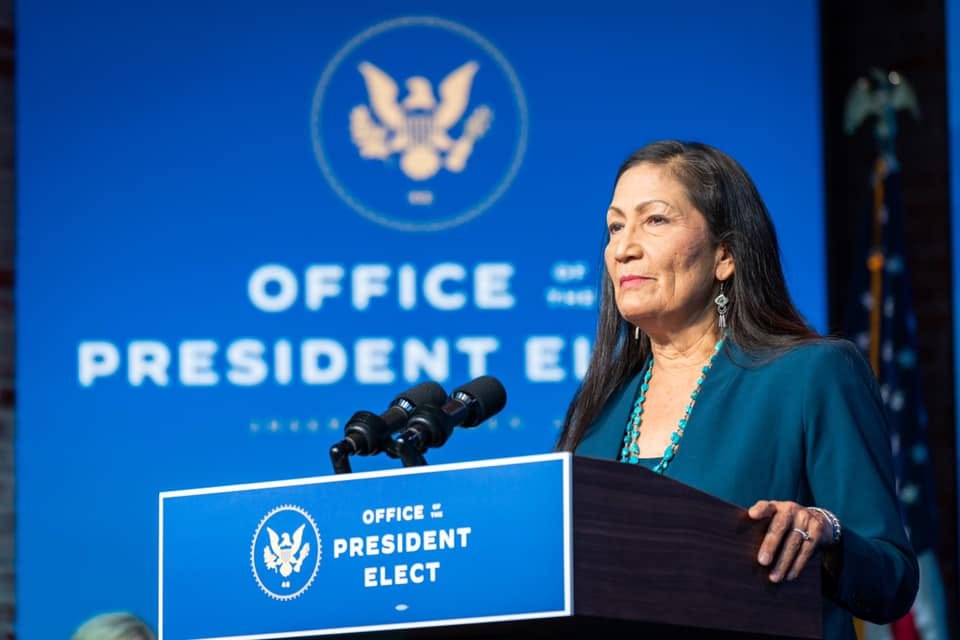The Liftoff: What's in (and out) of the co-chair's budget framework?
PLUS: "Public spat" between Kotek and Wheeler; city councilor goes to the White House; drama in Clackamas County; two Oregon congresswomen take center stage; and more!
Welcome back to The Liftoff!
Happy Oregon spring break! We hope you’re relaxing on vacation, but if not—at least you have The Liftoff to keep you busy!
Thank you for sharing and sending us feedback (we read it!). If you like what you see, please consider upgrading your subscription, or advertising with us. Our readership continues to grow, so email us to learn more!
If you are interested in writing an op-ed for The Oregon Way, also reach out!
1. Kotek notches big (and unusually early) victory with passage of housing package
In the biggest news of the week: The Oregon Senate passed (by a 21-7 vote) a $200 million bipartisan housing and homelessness package. Now Governor Kotek’s priority legislation moves to her desk for signature.
From the Oregonian, “The rapid and lopsided passage of the first bill represents a major victory for Kotek, a Portland Democrat who made housing her signature issue during her record-setting nine years as speaker of the House. The fact the money measure passed the Legislature in March, with millions slated to be pumped out to communities starting this week, is highly unusual and shows the sense of urgency in both parties...”
New figures show Multnomah County has spent less than half of its budgeted funding from the Metro homeless measure. Willamette Week’s Nigel Jaquiss writes, “$22.3 million: That’s how much Metro homeless services bond money Multnomah County budgeted but failed to spend in the first half of the fiscal year.”
Multnomah County Commissioner Sharon Meieran wants to look into buying the 241-room Crowne Plaza Hotel in Northeast Portland for a homeless shelter and supportive housing for Portlanders with mental health issues, reports Anna Del Savio with The Portland Tribune.
Portland Mayor Ted Wheeler said the city may now provide sleeping pods (versus tents) at Portland’s first designated mass homeless camp. According to the Oregonian, sleeping pods (unlike tents) qualify for state and federal money, and Governor Kotek may support the idea.
In other Kotek/Wheeler news, check out this tweet from Shane Kavanaugh at the Oregonian about the “first public spat” between the two:





Clackamas County Chair Tootie Smith reversed course on her vote last month on a $15.2 million purchase of a 100-room motel to serve as transitional shelter. After originally voting yes, Smith called an emergency board meeting and abruptly voted no—killing the “Project Turnkey” project. OPB’s Alex Zielinkski shared this insight:
2. Powerful budget co-chairs release their framework
The powerful co-chairs of the Ways and Means Committee released their 2023-2025 budget framework. In a press conference Thursday, Rep. Tawna Sanchez and Sen. Elizabeth Steiner shared their priorities:
The co-chairs want a 2.5% budget cut for state agencies as federal COVID cash runs out, writes Julia Shumway with the Capital Chronicle. The cuts would come from cutting back on purchases and not filling vacant staffing positions.
Even with state agency cuts, they also want to increase overall spending to help pay for housing, health care and more over the next two years.
The budget proposes maintaining service levels for program areas including education, healthcare and public safety, writes The Statesman Journal.
The co-chair’s budget include $9.9 billion for the State School Fund, $400 million more than the state’s current service level estimate—but $400 million less than education advocates estimate for current service level funding.
But Oregon’s May 17 revenue forecast is still looming. And with the deadline approaching, so is a potential Democratic clash between Governor Kotek and the co-chairs of the committee, writes Hillary Borrud with The Oregonian:
“The Legislature’s top budget writers pledged Thursday to continue setting aside savings in the rainy day fund, despite Democratic Gov. Tina Kotek’s proposal earlier this year to divert savings and use the money to tackle the state’s housing shortage, homelessness crisis, behavioral health care needs and poor education outcomes.”
3. Metro Councilor Juan Gonzalez offers a framework for navigating complex challenges
Juan Carlos Gonzalez is the Metro Councilor for District 4 (which includes parts of Beaverton, Bethany, Aloha, Bonny Slope, Raleigh Hills, West Slope, Cedar Mill and Cedar Hills, Hillsboro, Cornelius and Forest Grove). When he was sworn in, he made history as the youngest and first elected Latino Metro Councilor in the history of Metro.
Juan brings an interesting and thoughtful perspective to complex questions: in this episode, we cover land use planning, equity in decision making, semiconductors, housing supply, and transportation infrastructure. We also cover sports and the role of athletics and outdoor recreation in Oregon's economy. We enjoyed chatting with Juan because he's transparent in how he thinks about challenging questions and acknowledges tradeoffs inherent in public policy.
4. Sponsored Message from Harrang Long P.C.: Harrang Long’s Appellate Practice
This message is from our sponsor, Harrang Long P.C.
Few law firms in Oregon match the experience and expertise of Harrang Long P.C.’s appellate practice group. Three of our lawyers have been named in The Best Lawyers in America© for appellate law, and one of our lawyers has been named in The Best Lawyers in America: Ones to Watch© for appellate law, demonstrating the breadth and depth of our team. Our group includes two former Solicitors General for the State of Oregon, who were responsible for all of the state’s appeals, including appeals to the United States Supreme Court. Those lawyers, William F. Gary and James E. Mountain, Jr., also are members of the American Academy of Appellate Lawyers.
Collectively, our team has handled thousands of appeals before state and federal courts, including civil appeals resulting in precedent-setting decisions on business, constitutional, and public policy issues. We represent clients in appeals from trial court decisions and administrative orders, as well as initiative ballot title challenges. To learn more about Harrang Long’s Appellate Practice Group, click here.
5. Ducks football coach sounds off on legislation (and other highlights from Salem)
From the Oregonian: “Dan Lanning reacts to Oregon House bill that would hold college coaches responsible for bad fan behavior”
Oregon lawmakers were flooded with comments on abortion access and gender affirming healthcare, writes veteran Salem correspondent Peter Wong. The House health care committee received 600 statements for and against HB 2002, which would expand reproductive health care protections.
Oregon’s childcare problem. OPB looked at some of the childcare bills this session (spoiler alert—many are actually bipartisan!)
Oregon Republican leaders ask Governor Kotek to appoint a special prosecutor to investigate the OLCC over bourbon scandal. They also asked the OLCC and the Attorney General to share the names of lawmakers who “used their position for personal gain, an action which Oregon government ethics laws clearly prohibit,” reports the Oregonian.
Stronger protections for hate crime victims: HB 3443 would allow victims of hate crimes to break their rental leases with no financial penalties, and allow victims to take protected leave from their jobs, according to the Oregonian.
Oregon is closer to pumping your own gas. The Oregon House passed HB 2426, which would allow stations to designate half of pumps for self-fueling (owners would still need to provide some full service).
Governor Kotek has nominated a slate of new appointments to state boards and commissions, including Sheronne Blasi, a former Salem-Keizer School Board Member, and Libra Forde, who recently ran for Clackamas County Commissioner.
6. The Oregon Way: Ideas to drive Portland’s comeback
Oregon Way contributors Gary Conkling and Mark Hester have two great pieces this week, both focusing on Portland. Hester focuses reigniting downtown by hitting two birds with one stone—and Conkling has a robust checklist for how to revive Portland’s image. Have thoughts on the pieces? Comment on the links below — Gary and Mark appreciate your feedback!
7. Oregon goes national
The Greater Idaho movement gains national attention. The New York Times provides a fascinating look at who is behind the movement, and offers quotes from State Rep. John Lively.
From the Oregon Capital Insider: U.S. Secretary of the Interior Deb Haaland visited Central Point and announced $21 million in federal resources for wildfire prevention.
David Emami, a Happy Valley City Councilor, represented Oregon at the White House during a presidential reception celebrating the Persian New Year.
8. News Roundup: Schmidt cleared of wrongdoing, Salinas and Chavez-DeRemer take center stage in major negotiation
U.S. News and World Report ranked The Allison Inn & Spa Oregon’s top hotel, according to the Newberg Graphic.
Multnomah County District Attorney Mike Schmidt was cleared of gender discrimination and retaliation allegations. According to The Oregonian, the DA’s office paid law firm Barran Liebman $200,933 to investigate.
The Port of Coos Bay wants to become major shipping hub. Coos Bay is the only shipping facility between San Francisco and Portland, and efforts are underway to expand its capacity reports Brian Bull with KLCC.
Eugene’s ban on natural gas on new construction has qualified for the ballot, according to The Register Guard.
Intel co-founder Gordon Moore passed away at the age of 94. Mike Rogoway at The O has a great profile.
Oregon’s two new congresswomen, Andrea Salinas and Lori Chavez-DeRemer, will be at the center of consequential negotiations. From the Oregonian: “Negotiations on a massive farm and food stamps package are quickly testing two first-term members of Congress from Oregon — one Democrat and one Republican”
Thank you for reading!
Tips? Feedback? Ideas? Corrections? We want to hear from you! Email benjaminwbowman@gmail.com or kristinaedmunson@gmail.com.
Please become a paying subscriber today. Your support will help us grow and offer more opportunities to this community. It’s just $10 a month!
Interested in advertising with us? Get in touch! Our readership has grown significantly and we reach a wide variety of Oregonians!
About the Authors
Ben Bowman is the state representative for Oregon House District 25 (Tigard, Metzger, and South Beaverton) and a member of the Tigard-Tualatin School Board. In his day job, he works as an administrator for a public school district. Previously, he worked as a legislative aide for former Reps. Margaret Doherty and Val Hoyle. He also co-hosts The Oregon Bridge podcast. In the newsletter and podcast, he speaks only for himself.
Alex Titus is a small business owner and consultant to businesses, nonprofits, and associations. Previously, he served as an Advisor in the Trump Administration and as a Policy Advisor to President Trump’s Super PAC. His writing has appeared in National Review, Fox News, The Hill, RealClearPolitics, and other publications.
Kristina Edmunson has been everything from press assistant for Governor Kulongoski, media advance associate for Vice President Joe Biden, and communications director for Attorney General Rosenblum. Born and raised in Eugene, she has been involved in some of the biggest and most controversial policy and legal decisions in Oregon over the last decade. She speaks only for herself in her contributions to The Liftoff.














